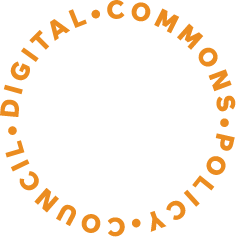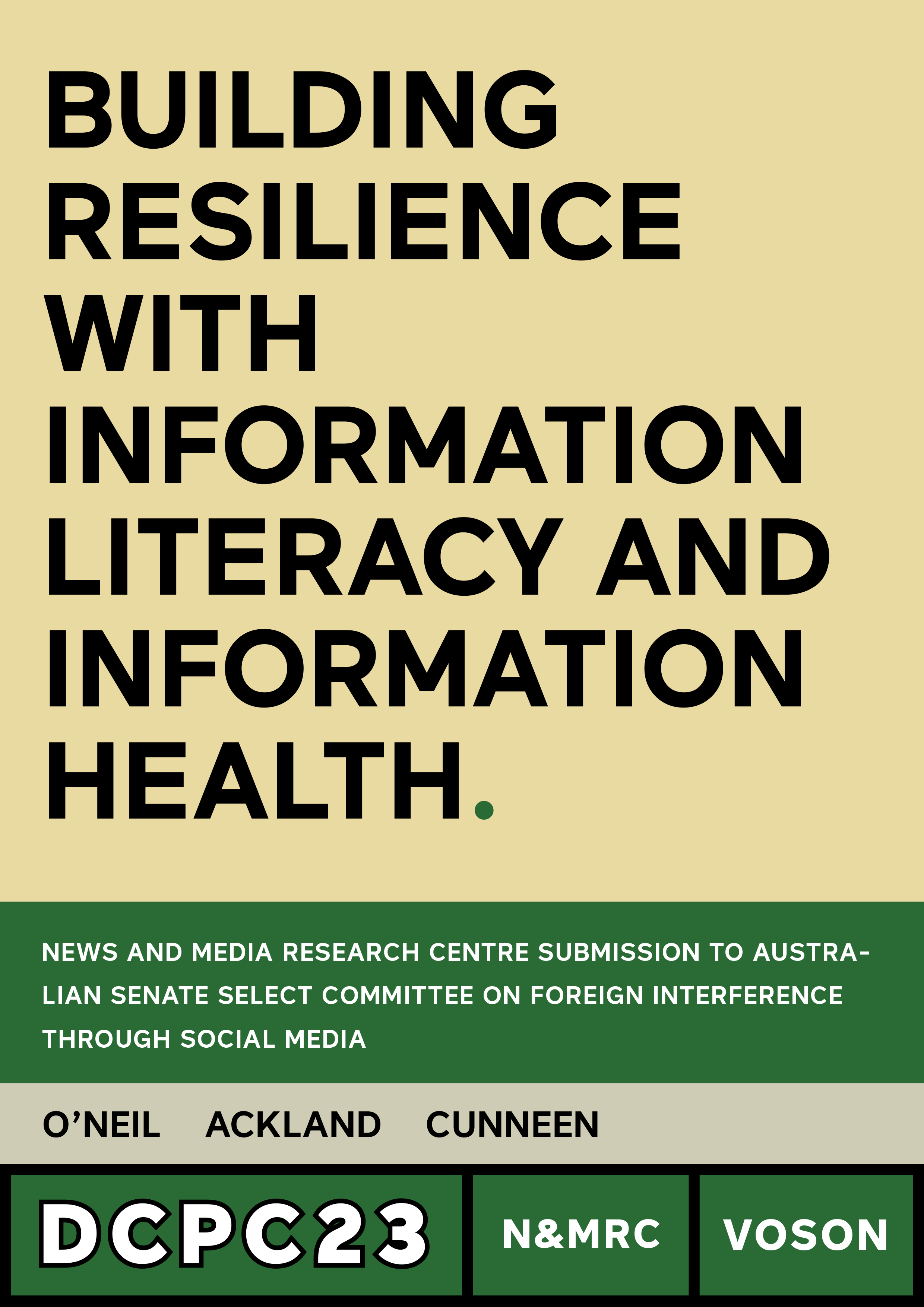Title Building resilience with information literacy and information health
Released 30 AUG. 2023
Format A4, 34 pages.
O’Neil M, Ackland R & Cunneen R (2023) Building resilience with information literacy and information health. DCPC/NMRC, University of Canberra, DOI:10.25916/d15n-g243.
How can people become more resilient to misinformation? What exactly does resilience mean when it comes to information literacy? Where can information resilience be collectively experienced, and developed? Researchers from the University of Canberra and the Australian National University are providing answers.
A report by the University of Canberra’s News and Media Research Centre released on 30 August 2023 argues that to counter foreign interference, debunk conspiracies, and safeguard Australian democracy, the information skills of Australians must be increased.
The report outlines three key information resilience principles: non-partisanship, speed, and transparency. It then presents two research programs which apply these principles in practice.
1. An ACT Education Directorate-University of Canberra information literacy program conducted in 2022. This program used lateral reading and Wikipedia to increase the fact-checking skills of students in four Canberra primary and secondary schools.
2. An ongoing University of Canberra / Australian National University project using computational network-analysis tools developed by the Virtual Observatory to Study Online Networks (VOSON). This program maps the health of online information environments, using the example of Twitter discussions about the Voice to Parliament.
Professor Mathieu O’Neil, one of the report’s authors, said: ‘When information is over-abundant, there is a risk that epistemic pollution becomes impossible to detect. Our research shows how people can acquire the necessary tools to deal with misinformation, or understand the quality of their information environment. These information resilience principles and practical skills can inform information literacy campaigns and initiatives to make the Australian public more resilient.’
About the report
This report is based on the News and Media Research Centre’s submission to the Australian Senate’s Select Committee on Foreign Interference through Social Media. The authors are Professor Mathieu O’Neil (News and Media Research Centre, Faculty of Arts and Design, University of Canberra; DCPC), Professor Robert Ackland (School of Sociology/VOSON, The Australian National University; DCPC), and Dr. Rachel Cunneen (Faculty of Education, University of Canberra).
The information literacy research was funded by the ACT Education Directorate – UC Affiliated Schools Research program and the US Embassy – Canberra. The information health research is funded by the Volkswagen Foundation’s Artificial Intelligence and the Society of the Future initiative.
Download



